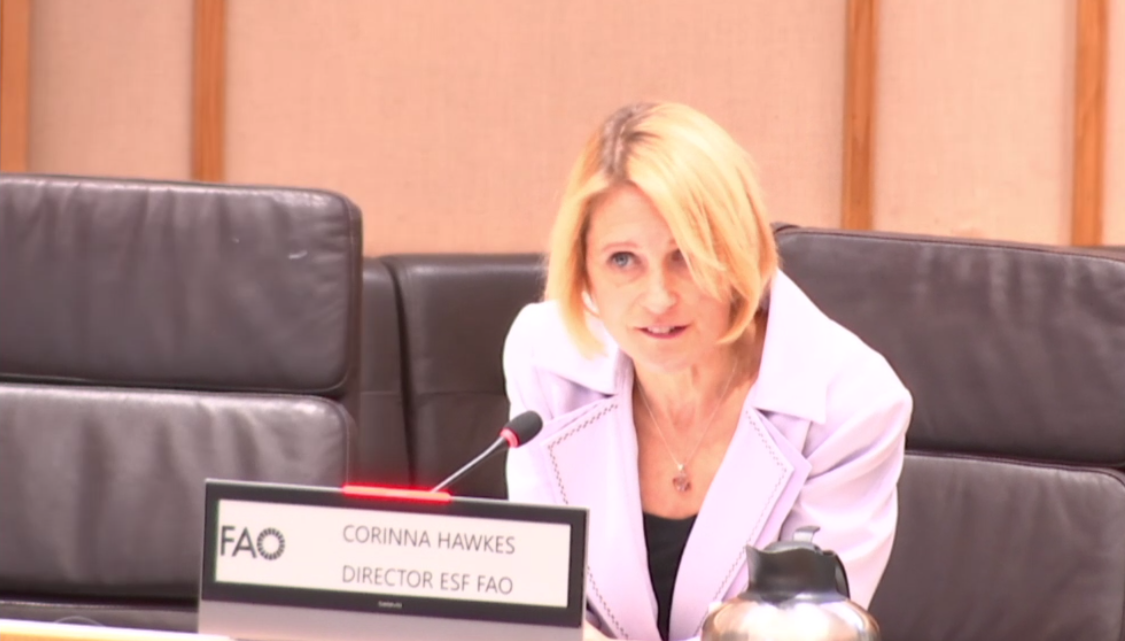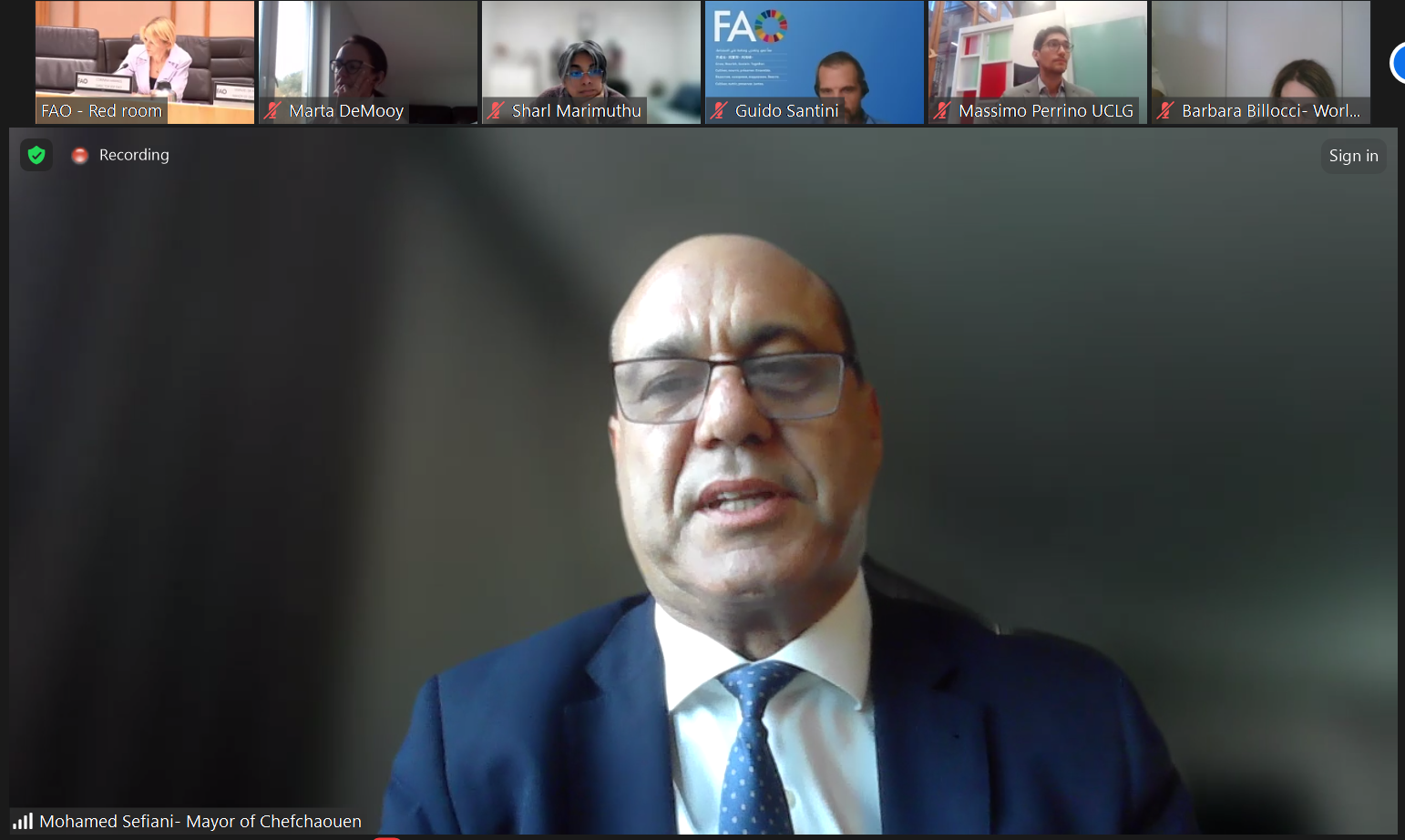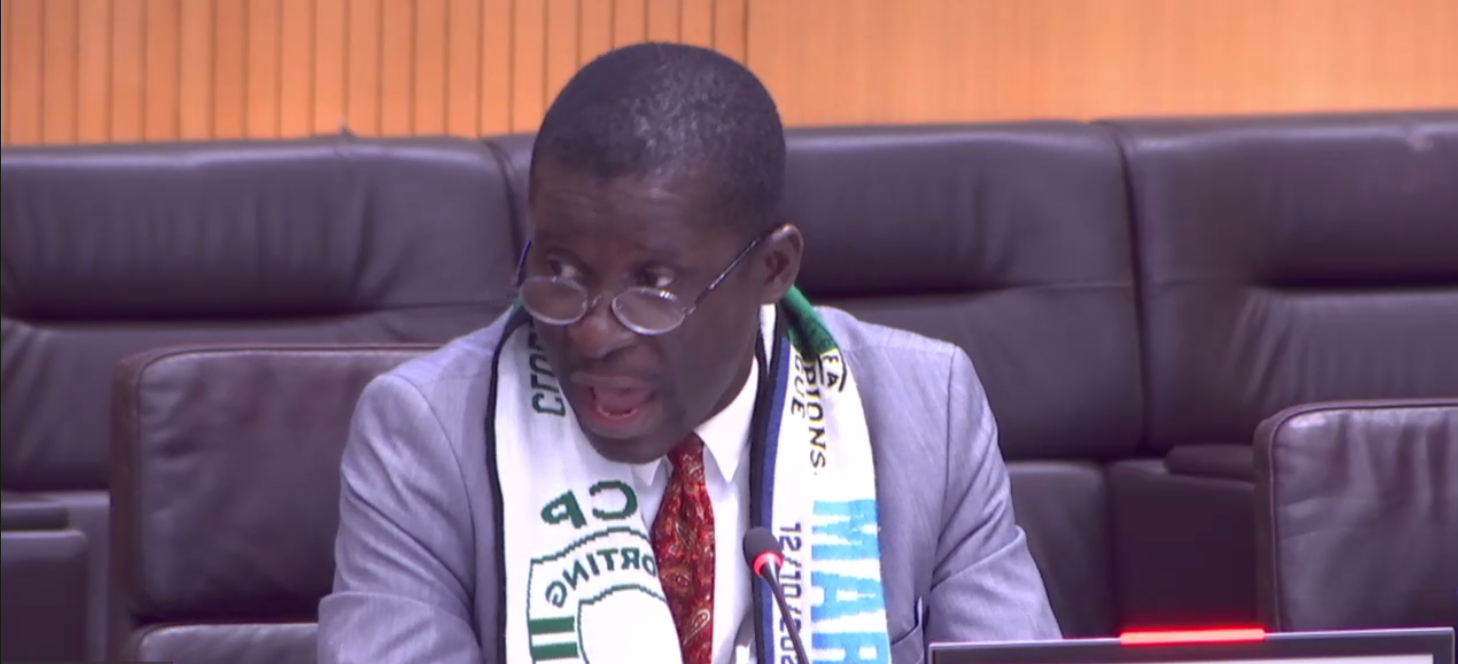CFS51: Maximizing Transformative Opportunities for Healthy Diets in Sustainable Urban Agrifood Systems
02.11.2023
In the global pursuit of achieving Sustainable Development Goals (SDGs) by 2030, one imperative stands out: the need to ensure equitable and inclusive access to healthy diets from sustainable agrifood systems, leveraging the pivotal role of city and local governments.
On October 25, 2023, from 1.30 to 2.45 PM (CET), FAO, UCLG and a consortium of partners* co-hosted the official Side event “Our Seat at the Table: Maximizing Transformative Opportunities across the rural-urban Continuum to deliver healthy diets from sustainable agrifood systems” during the 51st Committee on World Food Security, in the FAO Headquarters in Rome, and in hybrid format. This collaborative effort underscores the gravity of the challenges in our current local and global agrifood systems and the collective commitment to finding solutions at the local level.
Accelerated, Transformative Action is paramount to delivering healthy diets from inclusive, sustainable agrifood systems. This action is essential for ending all forms of malnutrition, especially for those most vulnerable, and for achieving the interlinked social, economic and environmental 2030 SDGs. Local and regional governments have already played a pivotal role in advocating for the significance of local and territorial food systems and local agencies in driving forward agrifood systems transformation to support the successful realisation of the SDGs. Now, the collective focus has shifted from advocacy to implementation, towards fostering greater local ownership and facilitating accelerated, coherent, coordinated national and local actions.
Urbanization is a defining force shaping our food systems and the quality of diets. The impacts of urbanization highlight the need for seamless integration of formal and informal sustainable and nutrition-sensitive value chains across the rural-urban continuum. This presents many opportunities and policy entry points for urban and local governments, along with other local stakeholders including other levels of government, wider civil society and multiple sectors. Strengthening local food systems offers the potential to create co-benefits for both communities and the environment.

Leveraging on the many food system connectivities between small, medium and large size cities and rural towns and landscapes, local-level interventions have the capacity to help address the alarming disparities in society. Moreover, these interventions are necessary to address the subsequent diet shift towards poorer diets as a consequence of urbanisation across the rural-urban continuum. Food consumption patterns – even in rural communities – favour affordable, convenient and accessible foods often highly processed and energy-dense with high levels of added sugars, unhealthy fats and/or salt. In this way, interventions contribute to the fight against malnutrition and food insecurity, preserving biodiversity and supporting local economies.
Action at the local level should prioritize quality service provision and enhance access, affordability, and desirability of a diversity of nutritious foods needed for a healthy diet. Attention to equitability and inclusion is essential, including poor communities, gender, life stages, youth, and indigenous communities. The sustainability of these efforts depends on people-centred, multisectoral approaches driven by robust, inclusive food systems governance and targeted investments at the local, regional, and national levels.
The Event on 25 October focused on three key Objectives:
Discussing Local and Territorial Approaches: The event aimed to engage in discussions regarding the implications of adopting local and territorial approaches for tackling challenges and harnessing opportunities in delivering healthy diets from sustainable agrifood systems. Showcasing Inclusive Solutions: The event showcased inclusive, people-centred, locally-based food system tools and solutions designed to address malnutrition, protect the environment, strengthen resilience, and expedite progress towards the 2030 SDGs. Maximizing Opportunities: Lastly, the event capitalized on opportunities presented by upcoming reports and initiatives, including the High-Level Panel of Experts on Food Security and Nutrition (HLPE) Report on “Reducing inequalities for food security and nutrition” and its focus on local food systems and territorial governance. These opportunities can further advocate for and spur action by local and regional governments in agrifood systems transformation.
The session saw the participation of key actors in food systems transformation, including:
Corinna Hawkes, Director: Food Systems and Food Safety Division, FAO Manual de Aruajo, Mayor: City of Quelimane Mohamed Sefiani, Mayor: City of Chefchaouen Charlie Worthington, Food Systems Lead, Consumers International Richard McCarthy, President: World Farmers Market Coalition Stineke Oenema, Executive Director: UN NutritionFrom the perspective of local and regional governments, the Mayor of Quelimane, Manual de Aruajo shared the important work being undertaken in his city such as training women and young people in waste separation and the creation of compost, and emphasised the that it was critical that national governments could better understand and appreciate the critical work being undertaken by local governments in ensuring sustainable and equitable food systems in order to sufficiently include them in national policies, and in turn to adequately resource and support local food system transformations.
Mayor of Chefchaouen and UCLG Special Envoy on Food Systems, Mohamed Sefiani went on to recall the critical interconnection between local public services and food systems, reiterated the critical role that local governments continue to play in SDG localization as was emphasised in the SDG Summit’s Local and Regional Government’s Day in September 2023, and went on to celebrate the CFS 2024-2027 Multi-Year Program Workplan’s (MYPOW) inclusion of a strong focus on local and regional government’s role and engagement in the CFS going forward.
UCLG also participated in the CFS plenary session on the 2024-2027 Multi-year programme of work, as an Ad-Hoc Member of the CFS Advisory Group. Massimo Perrino, Policy Officer, UCLG, participated and stressed that the local and regional government constituency especially commends the CFS for including a strong focus in the MYPOW for greater local and regional government engagement as is clearly reflected in the focus of the next High Level Panel of Experts of the CFS report on “Strengthening urban and peri-urban food systems” for 2024 and the stemming policy and advocacy focus on this subject for 2025.
Overall, the local and regional governments constituency expressed its utmost support the development of the HLPE report and policy workstream and can contribute to the development of policy guidance on these issues, convene consultations with the local and regional government constituency, and bring these issues to other international forums where local governments are active such as the UN High-Level Political Forum for the 2030 Agenda, the COP, among others.
*The event was co-organized by the Food and Agriculture Organization (FAO), UN-Nutrition, United Nations Human Settlements Programme (UN-Habitat), United Nations Convention to Combat Desertification (UNCCD), The Urban Food Systems Coalition (UFSC), United Cities and Local Governments (UCLG), The Global Alliance for Improved Nutrition (GAIN), and The Coalition of Action on Healthy Diets from Sustainable Food Systems (HDSFS).
